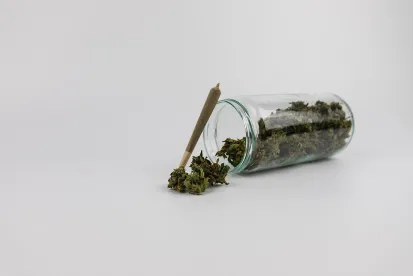“Progress, far from consisting in change, depends on retentiveness… Those who cannot remember the past are condemned to repeat it.”
– George Santayana, The Life of Reason
We originally aimed to quote Santana rather than Santayana to eloquently say history has a way of repeating itself, but our lyrical recall failed us. Welcome back to the Roaring Twenties, where federal prohibition is still in full swing. Like the alcohol laws of the 1920s, American cannabis law today is (to quote an editor of this blog) “irrational and inconsistently applied.” Consider the strange case of Jay Gatsby, if you will.
In 1922, under the 18th Amendment and the Volstead Act, it was illegal for Gatsby to own a bottle of bourbon, beer, or Bordeaux. Unless, of course, he purchased that bottle before the act went into effect on February 1, 1920, and only planned to drink it in his own home or serve it to his guests. If you’ve ever wondered how the Great Gatsby could throw such raucous parties during the height of Prohibition, the answer is bootlegging or a very, very big wine cellar full of pre-1920 booze.
Like alcohol in 1922, cannabis in 2022 is federally outlawed but can be consumed legally under certain circumstances. Instead of federally outlawed alcohol and legal home consumption, the 2020s are dominated by federally outlawed cannabis coexisting with a billion-dollar cannabis market now legal in 38 American states, now that Kentucky is on board.
When Dr. Dre released “2001” 23 years ago, nationwide cannabis decriminalization, medical use, and adult use (aka “recreational use”) were nothing but pipe dreams. Y2K appeared to be nothing more than the next episode in restrictive cannabis law. Looking forward at the end of the 20th century, the 21st held no real hope for change, much less progress, in federal cannabis reform. So, what’s the difference between the 1920s and the 2020s? This time around, federal politicians seem much more receptive to the idea of ending prohibition.
Subcommittee Hearing
On Tuesday morning the Subcommittee on Civil Rights and Civil Liberties took another step forward. The subcommittee convened a hybrid hearing titled “Developments in State Cannabis Laws and Bipartisan Cannabis Reforms at the Federal Level.” Days before the hearing, House Democrats and Republicans released a joint memo discussing the expected talking points for the public hearing. The three noted agenda items were:
-
How decriminalizing cannabis at the federal level would benefit certain communities, such as veterans, potential federal employees, people of color, and those arrested or convicted of non-violent cannabis offenses;
-
Needed reforms related to the expungement of non-violent cannabis offenses, access to financial services, regulatory policy, and taxation; and
-
Reasons the federal government should regulate cannabis akin to alcohol regulation.
The hearing followed script and involved spirited discussions of these items. U.S. Rep. Jamie Raskin (D-MD), chairman of the Subcommittee on Civil Rights and Civil Liberties, opened the hearing going through the high points from the memo. While the more socially conscious issues received significant attention and little pushback, the more overarching takeaway from the hearing was the subcommittee’s position that rescheduling cannabis to a lower category within the Controlled Substances Act would not suffice. Apt arguments were advanced that the social injustices and other problems that plague the industry (e.g., access to banking, taxation issues, lack of uniform regulation) would persist if the drug is simply rescheduled.
Pleas to deschedule the drug completely were repeated throughout the hearing, including from U.S. Rep. Nancy Mace (R-SC). Rep. Mace particularly focused on components of her States Reform Act, legislation that creates a federal framework for cannabis regulation while also honoring each state’s particular program.
Policy Leaders
The subcommittee invited seven policy specialists and leaders in the cannabis reform space to speak as witnesses:
-
Paul Armentano, Deputy Director of NORML
-
Andrew Freedman, Executive Director of CPEAR and former Cannabis Czar for Colorado
-
Eric Goepel, Founder and CEO of Veterans Cannabis Coalition
-
Amber Littlejohn, Senior Policy Advisor for Global Alliance for Cannabis Commerce
-
Keeda Haynes, Senior Legal Advisor for Free Hearts
-
Jillian Snider, Policy Director of Criminal Justice & Civil Liberties for R Street Institute
-
The Hon. Randall Woodfin, Mayor of Birmingham, Alabama
Birmingham’s own Mayor Woodfin testified about his pardon programs and expungement efforts in the Birmingham municipal courts. He urged the Alabama Legislature to move past strictly medical cannabis legalization into full adult-use legalization in the state. Speaking to all state and local executive officers, he called for the decriminalization of cannabis, pardons for nonviolent cannabis convictions, and a deprioritization of cannabis crimes among local law enforcement. Echoing other panelists, he ended by requesting that cannabis programs consider racial equity in their licensing, access, capital, and research processes.
U.S. Rep. Alexandria Ocasio-Cortez (D-NY) spoke up as well, championing the positions expressed by Mayor Woodfin about the need for expungements of those arrested or convicted for non-violent marijuana offenses, as opposed to just pardons.
Most house members and the testifying witnesses argued that if marijuana is descheduled, the regulatory scheme should resemble that governing alcohol while also implementing successful components of state programs already in place. Of note, the following recommendations were offered:
-
Do not interfere with state decisions on possession limits and home cultivation;
-
Impose a modest excise tax in lieu of the current effective federal tax rate of 50% or more;
-
Decriminalize underage possession;
-
Provide labeling and packaging rules for interstate commerce through the TTB;
-
Consider imposing national lab testing standards; and
-
Enact reasonable, but not overbearing, advertising limitations.
Alternate Views
Proponents of cannabis legalization were not the only hearing participants, however. U.S. Rep. Pete Sessions (R-TX) raised concerns related to drug addiction, automobile accidents involving drivers having positive cannabis tests, and the increased potency of THC in cannabis in a statement against legalization. Congressman Clay Higgins (R-LA), while cautioning younger Americans from using cannabis, noted that he sees benefit to allowing access to cannabis as a medicine to qualified individuals – focusing on the veteran population. His appeal was to reschedule the drug under the CSA, rather than deschedule it all together.
Conclusion
One would be remiss not to acknowledge the significance of Tuesday’s hearing towards the progression of federal cannabis reform. However, as with most things, politics will define what actually happens. Will the socially conscious advocacy positions cause a legislative divide like before, or will both sides of the aisle once and for all compromise and pass real cannabis reform? This hearing certainly went further to show that legislators in Washington are listening to the majority of Americans who are generally supportive of ending cannabis prohibition.
When, whether, and how Congress goes about rescheduling or descheduling cannabis will determine whether the insanity continues. Akin to alcohol, America may be waiting until the ’30s for federal prohibition to end. The momentum for reform in the ‘20s, however, can’t be ignored.
A full recording of the hearing appears here.
Mason Kruse also contributed to this article.




 />i
/>i
